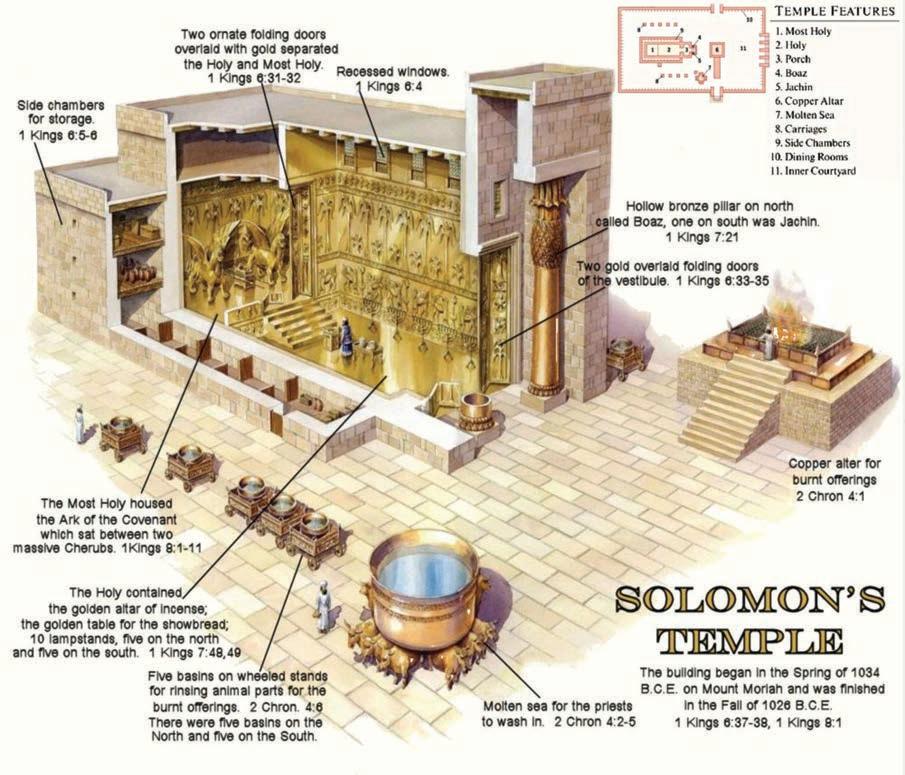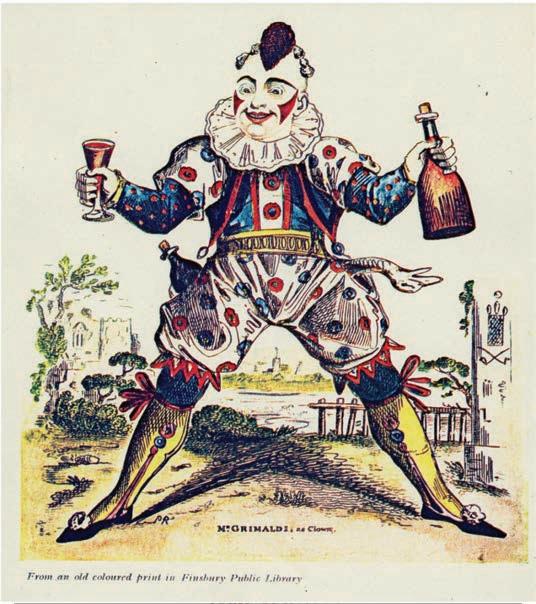
11 minute read
The Providence of God
Michael Pagani, M.Th.
CHRIST IS RISEN FROM THE DEAD, TRAMPLING DOWN DEATH BY DEATH, AND UPON THOSE IN THE TOMB BESTOWING LIFE. WE SING THIS ON PASCHA TO REJOICE IN THE RADIANT AND TRIUMPHAL FEAST OF CHRIST’S HOLY RESURRECTION. IN THIS FEAST WE HAIL THE DESTRUCTION OF SATAN’S HOLD OVER OUR BODY, MIND, AND SOUL. ON THIS FEAST OF FEASTS, WE PARTAKE IN THE GLORY AND LIGHT OF THE HEAVENLY KINGDOM. WE PROCLAIM VICTORY OVER THE SUFFERING AND THE DARKNESS OF OUR BROKEN WORLD. WHY THEN IS THE WORLD STILL SICK AND SUFFERING, WHEN CHRIST IS RISEN, AND THE ANGELS REJOICE? WHY DO WE STILL BATTLE DEMONIC FORCES, WHEN CHRIST IS RISEN, AND THE DEMONS ARE FALLEN? WHY DO WE STILL ENDURE UNJUST PAIN AND DEATH, WHEN CHRIST IS RISEN, AND LIFE REIGNS? WHY DO WE GROW OLD, SUFFER, AND DIE, WHEN CHRIST IS RISEN, AND NOT ONE DEAD REMAINS IN THE GRAVE?
Advertisement
Being Orthodox does not exempt us from these difficult questions. Trying to reconcile “why bad things happen to good people” with our proclamation of the Resurrection can lead us to question the mercy and goodness of God. When we experience sickness firsthand, whether our own, or that of our loved ones, we can fall into despair and wonder if Christ even cares for us. Does he care or hear our prayers? This is why it is important to understand the providence of God. We do not rely on “fate,” nor do we believe in a divine destiny chosen for us before we were even born. God’s providence is for us to be saved, but one of the greatest gifts is free will, so we need to choose to accept God’s providence.
In the words of St. John Chrysostom, “Christ never draws anyone to Himself by force and violence. He wishes all men to be saved, but forces no one.” In His perfect state of goodness and light, Christ’s presence has been part of every visible and invisible aspect of this world. St. Gregory Palamas tells us “God is wholly and entirely present in both His essence and in His energies.” Maximus the Confessor wrote that the term will in regard to God is synonymous with energy, meaning a manifestation of “real existence.” Christ’s divine energies permeate our world, and His presence resides in all things, seen and unseen. His presence is in all that is good and right, to which we can turn, rather than to the darkness and evil from the Fall. God’s energies have not changed since His Creation, nor are they subject to change, unlike those of mankind. God gave Adam the freedom to remain aligned with the goodness and light of God, or to reject God and align with the evil and darkness of the Devil. Adam chose to turn away from God.
The Orthodox term for the alignment of man’s will and God’s will is synergia. This freedom of will comes with our capacity to reason and discern truth. The perfect example of this alignment is the incarnation of Jesus Christ. He is fully man and fully God with no separation. Christ aligned His human will with His divine will. When our hearts and minds are aligned with that of God, we enter into a state of theoria. This is the illumination by God’s light, and sharing in it, that brings us to salvation. An Orthodox Christian in a state of theoria is one in God’s light; in unceasing prayer. We must choose to be in God’s healing light and the loving presence of Christ. This is a union of our faith with the wisdom of God and the grace of the Holy Spirit.
It is our free choice to turn towards God, or away from Him. Sadly, our sinful choices have spawned sickness, despair, suffering, and death. We Christians must accept that our faith, or lack of faith, combined with our actions, determine our relationship with God. Grace is everywhere and abounds without limit, but it is our willingness to align with this boundless Grace, or turn away from Him, that determines God’s presence in our lives.
Vladimir Lossky (1903–1958) described faith as a “participatory adherence to the presence of Him Who reveals Himself.” The word participatory is an adjective indicating action, a movement towards God, rather than merely reasoned thoughts about Him. We are always either moving closer to God, or further from Him. The closer we move to God, the more we experience healing and light. The farther we move from the grace of God, the more our lives become burdened with sickness and darkness.
The Old Testament describes this fluctuation of movement toward God in anthropomorphic terms. In Psalms 142, we read: “In Thy righteousness shalt Thou bring my soul out of affliction, and in Thy mercy shalt Thou utterly destroy mine enemies.” Here, the providence of God seems to bring about both salvation and destruction. David’s desire to move closer to God brings his energies into “up-righteousness,” and separates him from the actions of his enemies, who are subject to the repercussions of their own actions. It is our choice to work with God or not, so we are responsible for the consequences.
The Ten Commandments, given to Moses by God in the book of Exodus, provide guidelines to turn away from evil and towards God. They are not a rule to satisfy the judgement of a legalistic God. They are wise guidance to live correctly. Our faith, reasoned actions, and active participation in spiritual growth, merge our mortal energies with the energies of God: truth, light, and love. When we stray outside the guidance given by or the teaching of the Church, we are making choices that results in sickness and death and move us away from God. However, our God is a merciful God, whose love for us remains steadfast. We can choose to confess, repent, and be granted mercy, forgiveness, and salvation.
Our earthly body is intricately connected to our soul and can be healed. St. Athanasius of Alexandria said, “For there is nothing that can exist which is not dependent upon the Logos.” The providence of God does not bring healing only to the physical body, or riches only to the faithful. Instead, it tends to the healing of the soul, and the riches stored in heaven. Even with perfect awareness and perfect unceasing prayer, we will suffer sickness, pain, disappointment, and death, because of the nature of the fallen world and our mortal bodies. On the other hand, we can only achieve salvation through our immortal bodies (spiritual bodies). Our “physical body” (1 Corinthians 15:44) possesses its own nature of corruption and destiny.
If we are healed by Christ by turning to Him, can He still use illness to teach us? Isaac the Syrian says that sickness sometimes can be an unexpected tool of divine instruction: “God brings illnesses for the health of the soul.” He also explains, “Be vigilant over yourself and consider the multitude of remedies that the true Physician sends to you for the health of your inner man.”
So what really constitutes healing in both secular medicine and the ministry of healing within the Church? The answer is found in God’s gift of free will and in His providence. St. Isaac the Syrian states, “If we love virtue, then it is impossible that the body not suffer from illness.” St. John of Damascus stated: “It is true that Christ has eliminated the necessity of sin, has put an end to the devil’s tyranny, and has removed the sting of death. But He has not ended sin, nor the actions of demons, nor physical death, nor in general the consequences of sin, for He did not want to violate the freedom of the human will which is the cause of these things.”
The present state of man from the standpoint of the end of all things (the eschaton) is explained in 1 Corinthians 15:42–45: “As for the resurrection of the dead. The body is sown in corruption, it is raised in incorruption, it is sown in dishonor, is raised in glory. It is sown in weakness; it is raised in power. It is sown in a natural body it is raised in a spiritual body. There is a natural body and there is a spiritual body.”
The connection between the spiritual body and the natural body of this life is demonstrated by the energies that resonate with, and influence, the healing process at every level of spiritual growth. The natural body speaks to the Holy Spirit in both thanksgiving and petitionary prayer. St. Athanasius states that “Christ having delivered the temple of His body to death, offered one sacrifice for all men to make them innocent and free from original guilt, and also to show Himself victorious over death and to create the first fruits of the General Resurrection with His own incorruptible body.”
The triumph of the physical (natural) body over death are what St. Paul tells us are the “fruits of the Spirit.” We have spoken of these attributes as the manifestation of a holy life. The physical actions, health, and peaceful state of being that permeates the Body of Christ is reflected in each person to the degree that they progress towards theoria. Christ makes it possible for us to triumph in a nature corrupted by sin. This is the path we must follow in this life. To live as close to the source of incorruptibility as we can; to move to purify ourselves at each stage; to be infused with His light; to sit in the silent prayer of theoria. The battle is not easy to fight, because we are constantly faced with the thought of our sins and the forces of darkness. However, the healing light and knowledge of the Holy Spirit will surround us if we pray as the Holy Theotokos does: “Thy will be done.”
The Holy Spirit also grants us the spiritual gifts of healing and miracles to combat the natural world, but does not make us immune to suffering and temptation. Our natural body is still subject to the forces of this fallen world. Therefore it is not immune to our biological weakness or our own volition. We are not powerless in this dispensation, because “the Godhead is manifested in the energies of this world. The Father appears as the possessor of the attributes, which is manifested, the Son as the manifestation of the Father, the Holy Spirit as He who manifests.” St. Gregory of Nyssa declares: “The source of Power is the Father; the Power of the Father is the Son; the Spirit of the Power is the Holy Spirit.”
Healing and forgiveness are available at all levels in this world. The devil is powerless to harm those who have reached theoria. St. John Chrysostom states: “If the soul is in good health, bodily illnesses can in no way harm a man. Illness, then, is only evil in appearance.”
The external and internal conflicts of illness, passions, and persecution serve as tools toward our ultimate healing and deification. Father Sophrony states: “We have said that grace is first given to us by God because He wants us to overcome the world by abandoning its ways. But the second period has an even higher aim: to eradicate the world from within ourselves and to bring our spiritual life to perfection.” John 6:45 states, “It is written in the prophets, ‘And they shall all be taught by God.’ Therefore, everyone who has heard and learned from the Father comes to me.”
Even in illness, disease, and attacks from demons, God can teach us how to grow closer to Him. He provides us with the means to sustain balance of body and mind. St. John Chrysostom tells us that: “There is evil, which properly speaking, is not evil, even though it bears that name such as illness, and other things of that sort. If they were truly evil, they would not be able to become for us the source of a multitude of blessings.”
Illness, both physical and mental, is not evil, but can be a temptation that would turn us away from God and others. It can cause separation, despair, and anger, by restraining our created energies in a loop of self-reflection. St. John Chrysostom tells us: “As a consequence of Adamic sin and effect of sin perpetuated in a fallen world, together with demonic activity, illnesses manifest the misery of humanity separated from God. In the corruption and suffering of the body, one experiences the weakness of one’s earthly being, the ephemeral character of one’s existence in this world and generally speaking one’s fragility, inadequacy, contingency and personal limits which reflects the illness of our entire fallen state.” The most revealing passage from St. John Chrysostom is: “Afflictions, illness, ill health and the pains that our bodies experience … are counted for the remission of our trespasses.”
Every time we pray for healing of others and for ourselves, we ask for mercy and forgiveness of sins through the incarnate God, Jesus Christ. His wisdom gives us the salve of health and allows us to desire a virtuous life through our suffering and tribulations. St. Gregory Palamas says: “Misfortunes help the faithful to put right sins, to become trained and experienced, to apprehend the wretchedness of this life, and to desire fervently and seek diligently the eternal adoption as sons, redemption and truly new life and blessedness.”
Our discernment of what needs to be healed for the sake of sustaining our continued physical and mental participation in the world is what remains to bring us closer to God. We should not wish for illness or tribulation, and when they affect us (which they will), we should not blame God. We should thank Him for the opportunity to struggle with our sins, and grow from them, and seek repentance and forgiveness.









